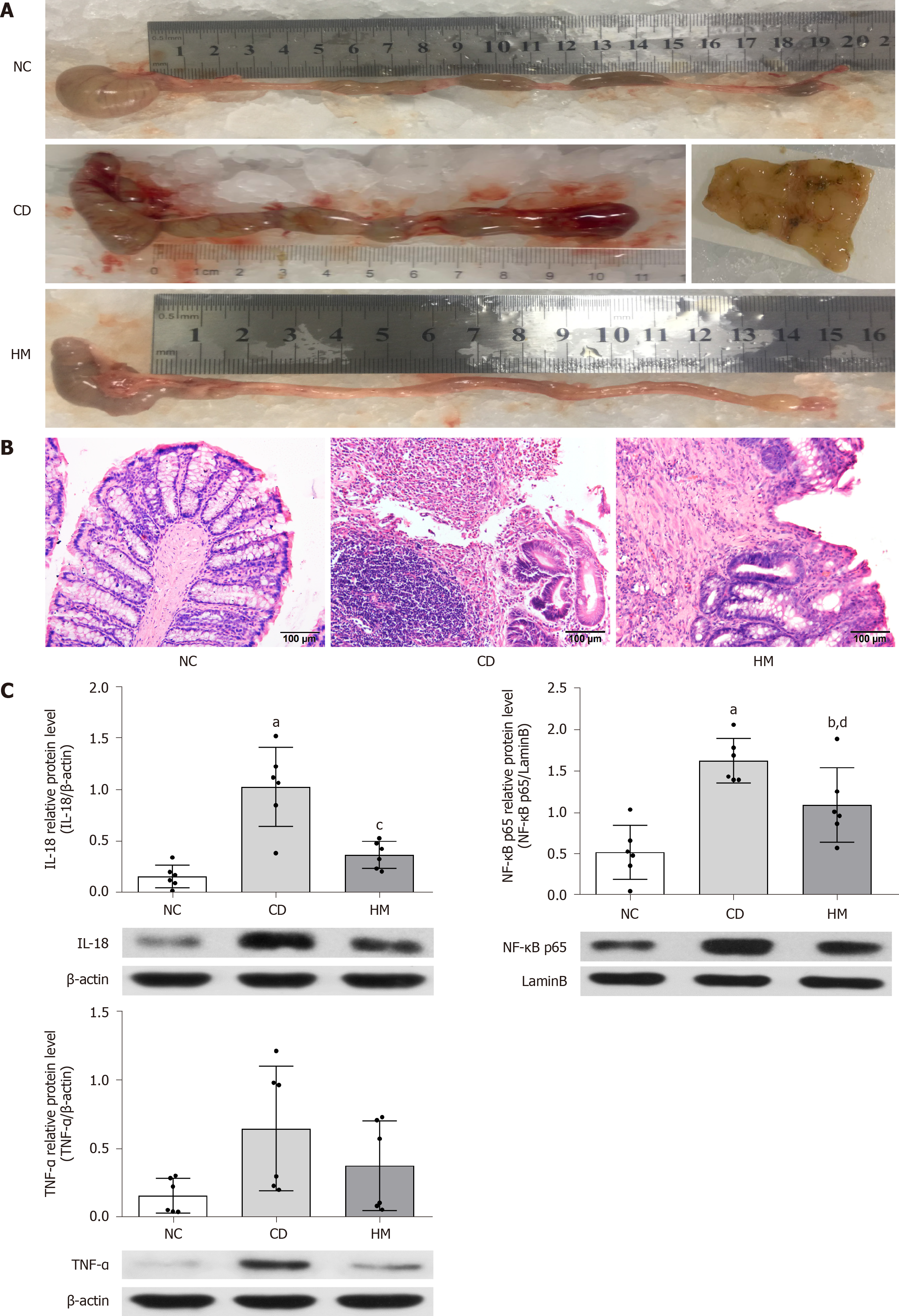Copyright
©The Author(s) 2020.
World J Gastroenterol. Oct 21, 2020; 26(39): 5997-6014
Published online Oct 21, 2020. doi: 10.3748/wjg.v26.i39.5997
Published online Oct 21, 2020. doi: 10.3748/wjg.v26.i39.5997
Figure 1 Herbal cake-partitioned moxibustion at the Qihai (CV6) and bilateral Tianshu (ST25) acupoints ameliorates colon damage and inflammation in Crohn’s disease rats.
A: Megacolon and cobblestone-like changes; B: Histopathological observations of colon tissue by hematoxylin and eosin staining. Scale bar: 100 μm; C: Expression of the colonic inflammatory factors interleukin-18 (IL-18), nuclear factor κB/p65 (NF-κB p65), and tumor necrosis factor-α (TNF-α) proteins evaluated by Western blot. Six independent experiments were analyzed, and the data are presented as the mean ± SD. aP < 0.01, bP < 0.05 vs NC group; cP < 0.01, dP < 0.05 vs CD group. NC: Normal control; CD: Crohn’s disease; HM: Herbal cake-partitioned moxibustion; IL-18: Interleukin 18; NF-κB p65: Nuclear factor κB p65; TNF-α: Tumor necrosis factor-α.
- Citation: Wang SY, Zhao JM, Zhou CL, Zheng HD, Huang Y, Zhao M, Zhang ZY, Wu LY, Wu HG, Liu HR. Herbal cake-partitioned moxibustion inhibits colonic autophagy in Crohn’s disease via signaling involving distinct classes of phosphatidylinositol 3-kinases. World J Gastroenterol 2020; 26(39): 5997-6014
- URL: https://www.wjgnet.com/1007-9327/full/v26/i39/5997.htm
- DOI: https://dx.doi.org/10.3748/wjg.v26.i39.5997









